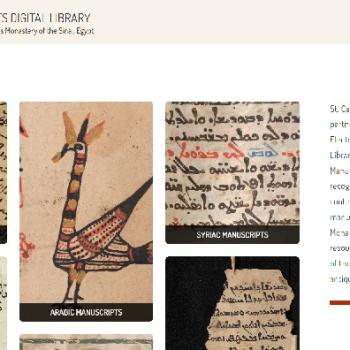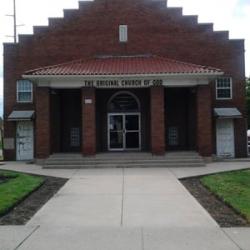It is funny how ideas come up. It started with me mentioning to my Sunday school class that my wife and I had a Zoom reunion with friends we hadn’t seen in a quarter of a century. Since they worked with Wycliffe Bible Translators, we said a few more things about languages (probably me boring everyone else with some of that). We then moved on to the story of “Doubting Thomas,” focusing on whether the nickname is fair as well as whether it is a label to be ashamed of or proud of.
We got back to the subject of languages towards the end as someone asked about Paul writing to the church in Rome in Greek rather than in Latin. This led to thoughts about how people who knew two languages mediated the Christian message’s spread to new contexts. We’re not sure how many different languages Jesus spoke. The stories about him and words attributed to him are in Greek except for occasional transliterated words and phrases in Aramaic. Paul the apostle was clearly bilingual (at least) and moved with ease between Aramaic and Greek and thus between interactions with populations that spoke one or the other primarily or exclusively. This led me to think about how individuals who knew two languages played an important role in the spread of the Christian message. People who knew Greek as well as Aramaic took the message beyond Jesus’ immediate linguistic environment. Those who received Paul’s letter in Greek but knew Latin as well took the message to a wider audience. Those Northern Galatians that misunderstood Paul’s intent in Acts did not know Greek well, presumably. We may also deduce that Paul’s impact in Southern Galatia helped rectify things and overcame Paul’s own linguistic shortcomings.
I said at some point that the last thing I need is another book idea. I have enough that I am working on. This topic seems like one worthy of exploration in a book, but even if I had no ideas or projects in the pipeline I don’t think I would be the one to write it. So I share it as a suggestion for others. There are so many academics in biblical studies and/or linguistics who might want to pursue this, who could do so far better than I could. Am I incorrect to think that there isn’t a go-to book on bilingualism in the early church? This seems like a topic that deserves further attention, and so if you are a graduate student or any other academic looking for a topic that leaves room for a new and distinctive contribution, this seems like one that is worth considering.
Of related interest:

















